Sustainability in the research and innovation endeavour

This conference explored possibilities for enhancing the environmental sustainability of research and innovation activities in wet and dry laboratory environments across all scientific disciplines in both industry and academia.
This hybrid Royal Society conference, developed in partnership with the Royal Society of Chemistry, offered a forum to connect a broad range of individuals working within both wet and dry laboratory environments who have an interest in enhancing the environmental sustainability of research and innovation activities. These included senior leaders from industry and academia as well as scientists, technicians, and students working in a wide range of scientific environments including physics, engineering, chemistry, biology, and clinical research.
It took a discursive approach to highlight and explore this topic, considering trade-offs and myths, examining examples of good practice and promising innovations, exploring current and future challenges, discussing how progress might be measured, and fostering opportunities for collaboration. The conference contained a number of elements, including:
- a series of roundtable discussions
- reflections from the Royal Society of Chemistry and the Academy of Medical Sciences’ FORUM on recent publications and workshops
- future direction of travel for the Laboratory Efficiency Assessment Framework
- case studies from industry
- discussion about metrics, data collection, and lifecycle assessments
- Scope 3 emissions
- a discussion for laboratory scientists, technicians and data scientists
- discussion with funding bodies
There was also unstructured time during refreshment breaks for networking and discussion.
Conference report
Download the conference report (PDF), a summary of the talks and activities from this meeting.
About the conference series
Supported by Rolls-Royce, this meeting formed part of the Royal Society’s Transforming our future series. These meetings are unique, high-level events that address the scientific and technical challenges of the next decade. Each conference features cutting-edge science from industry and academia and brings together leading experts from the scientific community, including regulatory, charity and funding bodies.
Event recording
Click watch on YouTube to view the full video playlist.
Organisers
Schedule
| 09:15-09:25 |
Opening remarks
Professor Roger Sheldon, Delft University of Technology
Professor Roger Sheldon, Delft University of TechnologyRoger Sheldon is a recognised authority on Green Chemistry and Catalysis and is widely known for developing the concept of E factors for assessing the environmental footprint of chemical processes. He is Professor Emeritus of Biocatalysis and Organic Chemistry of Delft University of Technology and Chief Executive Officer of CLEA Technologies. He is the author of several books on catalysis as well as more than 450 professional papers and 50 granted patents. His research interests are in the general area of green chemistry, (bio)catalysis and enzyme immobilisation. He has a Ph.D. in organic chemistry from the University of Leicester (UK) and prior to joining Delft University, in 1991, he had more than 20 years industrial experience, as Vice President for Research and Development at DSM / Andeno from 1980 to 1990 and with Shell Research Amsterdam from 1969 to 1980. |
|---|---|
| 09:25-10:10 |
Keynote address: Towards sustainable sustainability research
There is a wealth of ongoing research into the challenges (sustainability-related and otherwise) currently facing society. However, it can be difficult to be sure that research is being undertaken as sustainably as possible, and there are potential pitfalls, such as making undesirable substitutions, replacing one problem with another. In this talk, Helen will discuss the data that is available to guide decisions, some 'known unknowns', and how a healthy research culture might best consider sustainability, in all its many guises, without holding back vital research. 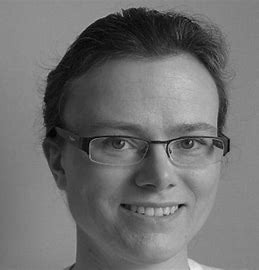
Professor Helen SneddonUniversity of York, UK 
Professor Helen SneddonUniversity of York, UK Professor Helen Sneddon carried out her MSci and PhD at the University of Cambridge, where she studied the use of dithianes in organic synthesis in Professor Steve Ley’s group. She then moved to University of California Irvine to work with Professor Larry Overman exploring the catalytic asymmetric chemistry of palladium(II) as a Royal Commission for the Exhibition of 1851 research fellow. She then worked at GSK for 15 years. She started in Medicinal Chemistry, but became increasingly involved in making synthetic processes and research operations as efficient and sustainable as possible. In 2011, she successfully pitched that GSK should have a group focussed solely on Green Chemistry, and she led Green Chemistry for GSK until taking up position the Director of the Green Chemistry Centre of Excellence at the University of York in April 2022. Her current research interests include solvent and reagent selection, halogenation (both exploring more sustainable ways of installing halogens and whether they are really necessary) and laboratory sustainability. |
Chair
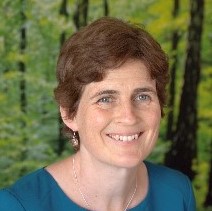
Dr Deirdre Black
Royal Society of Chemsitry

Dr Deirdre Black
Royal Society of Chemsitry
Deirdre Black is Head of Science & Sustainability Strategy Lead at the Royal Society of Chemistry where she has led the science policy, programmes and networks teams. Her role includes community insights and horizon scanning, with recent themes ranging from the contributions of science to the Sustainable Development Goals (SDGs) and digitisation in R&D to scientific recognition and green science.
Deirdre has a PhD in physics and a postgraduate certificate in sustainable business practice. She held postdoctoral positions in physics and in science education policy in the USA and UK before joining the RSC in 2011.
| 11:00-12:50 |
Break out room discussion sessions
Online attendees will have the option of participating in break out discussion sessions on Zoom with other attendees. These break out rooms will be facilitated by an individual with expertise in sustainability and research. Thoughts and comments generated from the discussions will be fed back to the wider audience by facilitators in a conclusion at the end of the session. |
|---|---|
| 11:00-12:50 |
Table 2 - Reducing the environmental footprint of laboratory infrastructure and major equipment: energy, equipment-sharing, trade-offs between new equipment and repairs
|
| 11:00-12:50 |
Table 3 - Laboratory supplies and Scope 3 emissions: innovations and trade-offs in procurement, new materials and re-use
|
| 11:00-12:50 |
Table 4 - Water within laboratory settings: minimising usage and maximising quality
|
| 11:00-12:50 |
Table 5 - Enhancing the environmental sustainability of laboratories in resource-limited settings
|
| 11:00-12:50 |
Table 6 - Minimising and managing waste within and beyond the laboratory
|
| 11:00-12:50 |
Table 7 - Quantifying and minimising the environmental footprint of computational research
|
| 11:00-12:50 |
Table 8 - Cultural and behavioural change (including remote working and associated trade-offs)
|
| 11:00-12:50 |
Table 9 - Gases, solvents, chemical products and processes: usage, recycling, and novel formulations
|
Chair
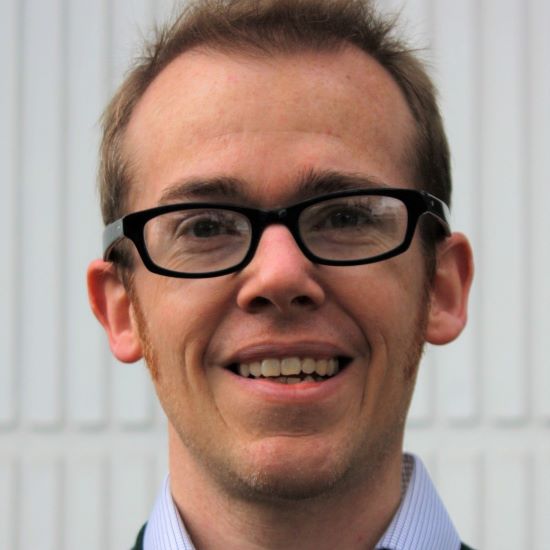
Dr John Broderick
Royal Society of Chemistry

Dr John Broderick
Royal Society of Chemistry
Dr John Broderick is the Royal Society of Chemistry (RSC) Net Zero Programme Manager, analysing the RSC's organisational carbon impact and charting a path to net zero by 2040. As part of the Policy & Evidence team, he also raises the profile of chemistry in diagnosing and dealing with climate change, drawing connections from science to policy.
Previously, John was a researcher and lecturer at the internationally recognised Tyndall Centre for Climate Change Research at the University of Manchester. John's academic work focussed on greenhouse gas emissions accounting, applying this approach to national and regional target setting, demand response in commercial buildings, smart grids, aviation and shipping, and unconventional gas production. His PhD research included one of the first academic publications on the voluntary carbon offset market in 2007.
He is a Chartered Environmentalist and Full Member of the Institute of Environmental Management and Assessment (IEMA).
| 13:50-14:05 |
Genuine life cycle thinking in the research process: where are we and what do we need?
This talk will consider the reality of attempts to minimise the environmental impacts of research, exemplified by the experiences of the University of Manchester, one of the largest universities in the UK. Laurence will discuss the progression from high-level ambitions and targets to measuring and attributing energy and water demand, sharing resources, pooling expertise, adopting shared programmes of action, and approaching behaviour change across a wide range of disciplines and cultures. The effects of a lack of useable data on these efforts, which likely dilute and misdirect the limited human and financial resources available, will also be explored. The talk will also consider the impacts of information provided by life cycle assessments (LCA) and how LCA data might change priorities and actions. Laurence will discuss the benefits, including the introduction of a holistic perspective on environmental sustainability and better targeting of activities, and the remaining challenges, including appropriate data availability, granularity and logistical limitations. 
Dr Laurence StamfordUniversity of Manchester, UK 
Dr Laurence StamfordUniversity of Manchester, UK Laurence Stamford is a Senior Lecturer in Sustainable Chemical Engineering at The University of Manchester. Originally a biologist, he switched to engineering in 2008 and gained his PhD in 2012 focusing on the quantification of environmental, economic and social impacts of power technologies. In his 15 years of sustainability assessment, he has worked in a variety of sectors spanning energy (nuclear, gas, renewables, storage), chemicals, materials, food and electrical systems. His research techniques include environmental, economic and social life cycle assessment (LCA, LCC and SLCA, respectively), scenario analysis and decision analysis, among others. This has involved collaboration with over 70 companies and institutions across Europe, the USA and New Zealand, and consultation by UK and EU government bodies. In addition to his research activity, he is the Head of Environmental Sustainability for Manchester's Faculty of Science and Engineering, and teaches BEng, MEng and MSc courses on sustainable development and sustainable energy systems. |
|---|---|
| 14:05-14:20 |
Background data: a compass for the sustainability journey
Good decision making can only be done if supported by good quality data that are transparent and traceable. In the context of the sustainability journey, this data represents the environmental impacts (such as carbon footprint, water footprint or resource depletion) of activities and products in the value chain under study. In this talk, Emilia will discuss how the ecoinvent background database supports this need for data. The background database provides generic data on all value chains, and this information can be used to estimate the impacts of the supplies or facilities used in lab research. When data need to be acquired for a supplier, the background database will be an essential tool allowing users to prioritise the specific data that need to be collected (for example, determining what contributes more to specific impacts, such as carbon footprint or others). The background database will also fill the remaining gaps and provide information that is too distant in the value chain to be collected, or too complex to be modelled by individuals (such as electricity mixes or waste treatments). The ecoinvent database covers more than 19,000 activities the global economy, enabling the existence of a large ecosystem of databases and benefiting hundreds of thousands of users that access it directly or via different software. 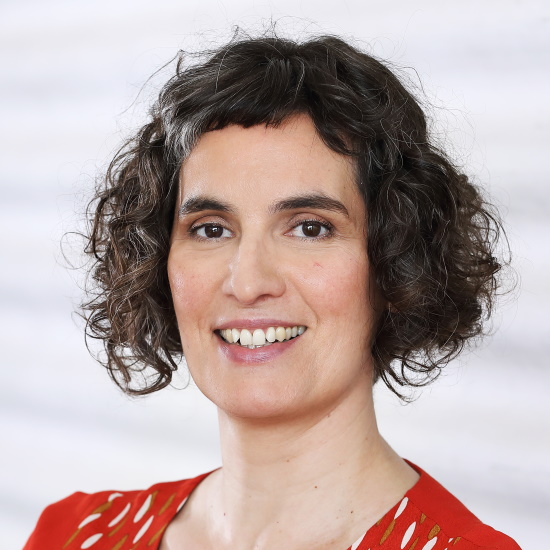
Dr Emilia Moreno Ruizecoinvent 
Dr Emilia Moreno Ruizecoinvent Dr Emilia Moreno Ruiz holds a PhD in Biology from the University of Seville, where she studied the bioremediation of organic solvents. Emilia also holds a Masters in Management and Sustainable Development from the ISEADD Management School in France. She is the Chief Technical Officer and part of the management of the ecoinvent Association, leading the development and publication of the ecoinvent database. She is responsible for the technical aspects of business development and strategy and oversees the research and development efforts of the Association. She also represents the ecoinvent Association at the Technical Advisory Board for the transition phase of the European Commission's Product Environmental Footprint (PEF) initiative. |
| 14:20-14:35 |
Enabling labs and institutions to assess equipment to truly improve research sustainability
In this talk, Andy will use case studies from major UK universities to discuss how equipment choices can significantly impact the sustainability in different areas of research. He will explore the loopholes in current equipment testing methods and standards, as well as how these can affect daily activities within institutions. He will also discuss factors that influence equipment energy consumption in the lab and how end users, procurement officers and estates management can harness these factors to decrease energy usage and reduce greenwashing. 
Andy EvansGreen Light Laboratories 
Andy EvansGreen Light Laboratories Since 2009, Andy has been breaking new ground in lab sustainability. His company, Green Light Laboratories Ltd, offer a range of services to ensure that any lab can deliver significant running cost savings through all of their day-to-day activities through best practice, procurement, policy and training. Andy’s customers include Russell Group Universities, funding bodies, procurement consortia, Biotech and pharmaceutical companies. Alongside these services Andy also collaborates with manufacturers and research organisations to assess the performance and running costs of a wide variety of laboratory equipment. He has recently been contracted to write the testing procedure for all laboratory cold storage units for the UK. Andy is one of the industry’s leading presenters. His unique and funny perspective help him to effectively share his knowledge, allowing his audience to make immediate, sustainable changes. |
| 14:35-15:05 |
Q&A and panel discussion

Andy EvansGreen Light Laboratories 
Andy EvansGreen Light Laboratories Since 2009, Andy has been breaking new ground in lab sustainability. His company, Green Light Laboratories Ltd, offer a range of services to ensure that any lab can deliver significant running cost savings through all of their day-to-day activities through best practice, procurement, policy and training. Andy’s customers include Russell Group Universities, funding bodies, procurement consortia, Biotech and pharmaceutical companies. Alongside these services Andy also collaborates with manufacturers and research organisations to assess the performance and running costs of a wide variety of laboratory equipment. He has recently been contracted to write the testing procedure for all laboratory cold storage units for the UK. Andy is one of the industry’s leading presenters. His unique and funny perspective help him to effectively share his knowledge, allowing his audience to make immediate, sustainable changes. 
Dr Emilia Moreno Ruizecoinvent 
Dr Emilia Moreno Ruizecoinvent Dr Emilia Moreno Ruiz holds a PhD in Biology from the University of Seville, where she studied the bioremediation of organic solvents. Emilia also holds a Masters in Management and Sustainable Development from the ISEADD Management School in France. She is the Chief Technical Officer and part of the management of the ecoinvent Association, leading the development and publication of the ecoinvent database. She is responsible for the technical aspects of business development and strategy and oversees the research and development efforts of the Association. She also represents the ecoinvent Association at the Technical Advisory Board for the transition phase of the European Commission's Product Environmental Footprint (PEF) initiative. 
Dr Laurence StamfordUniversity of Manchester, UK 
Dr Laurence StamfordUniversity of Manchester, UK Laurence Stamford is a Senior Lecturer in Sustainable Chemical Engineering at The University of Manchester. Originally a biologist, he switched to engineering in 2008 and gained his PhD in 2012 focusing on the quantification of environmental, economic and social impacts of power technologies. In his 15 years of sustainability assessment, he has worked in a variety of sectors spanning energy (nuclear, gas, renewables, storage), chemicals, materials, food and electrical systems. His research techniques include environmental, economic and social life cycle assessment (LCA, LCC and SLCA, respectively), scenario analysis and decision analysis, among others. This has involved collaboration with over 70 companies and institutions across Europe, the USA and New Zealand, and consultation by UK and EU government bodies. In addition to his research activity, he is the Head of Environmental Sustainability for Manchester's Faculty of Science and Engineering, and teaches BEng, MEng and MSc courses on sustainable development and sustainable energy systems. |
| 15:05-15:50 |
The Laboratory Efficiency Assessment Framework (LEAF): future directions
Nations, universities, companies, and the NHS have made net-zero commitments, but how will this affect scientific operations in the future? Laboratories are recognising their energy intensive nature, and considering their notable consumption of consumables. Many who work in the sciences are actively engaged to mitigate their impacts on the environment. More green lab efforts are growing around the world, as national networks and initiatives take off. LEAF, developed at UCL, is one such initiative. A certification in sustainable science, it is now in use in over 90 institutions in 15 countries and growing. In this talk, LEAF's manager, Martin Farley, will discuss his career and what led to LEAF. He will conclude by looking forward at how science might adapt to sustainability targets in the future. 
Martin FarleyUCL 
Martin FarleyUCL Martin started working in labs as a technician and researcher before moving into sustainable labs at the University of Edinburgh in 2013. He then went to King’s College London in 2014, where initiated their Sustainable Lab programme. In 2015, he founded Green Lab Associates through which he supports the Royal College of Emergency Medicine through their GreenED programme. He created and manages the LEAF programme from UCL, from where he currently works as their Sustainable Lab Manager. He speaks, writes, and engages widely on sustainable science. |
|---|
Chair

Lee Hibbett
University of Nottingham, UK

Lee Hibbett
University of Nottingham, UK
Lee Hibbett is a Technical Manager within the School of Pharmacy at the University of Nottingham (UoN). He is currently on a 6-month secondment with the university's Sustainability Team. There, he is looking at making laboratory areas greener and increasing the number of LAF-accredited labs.
Lee has been a technician at UoN for over 32 years, working in many different types of research labs. While sustainability has not been the focus for many of those years, he is pleased to note that in the last few years there has been a positive drive in the field.
In 2020 Lee set up the Technical Sustainability Working Group, which consists of technicians across all fields and departments. The working group collaborates with UoN Sustainability to bridge the gap between labs and the Estates department at the University, looking for new ways to improve and change sustainable practices. Through this work, Lee received the 2022 Green Gown Award for Sustainability Champion - Staff.
| 16:20-17:20 |
Panel discussion
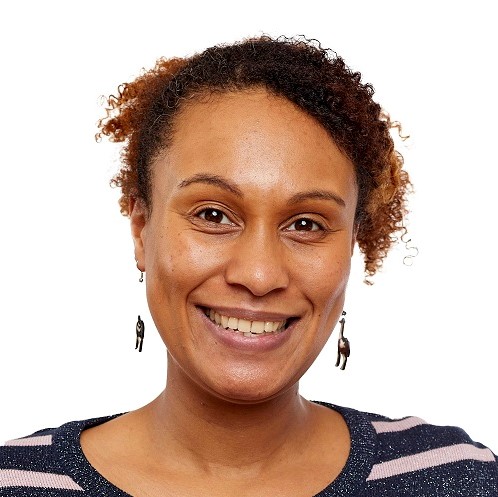
Hannah JohnsonPrinses Maxima Centrum, the Netherlands 
Hannah JohnsonPrinses Maxima Centrum, the Netherlands Hannah is a technician and lab manager at the Princess Máxima Center in Utrecht in the Netherlands, where she has worked to implement sustainable practices in her work and working environment. As well as local initiatives in her institute, Hannah is one of the core founders of Green Labs Netherlands (Green labs NL), a Netherlands-based foundation whose mission is “to embed sustainability as a key foundation of scientific research in the Netherlands”. Green Labs NL is made up of enthusiastic members of the scientific community and it runs projects, gives workshops and talks and aims to promote lab sustainability on a national level using the power of community. 
Richard GammonsUniversity of York, UK 
Richard GammonsUniversity of York, UK Richard Gammons works at the Green Chemistry Centre of Excellence at the University of York as part of the Research and Technical Team. He particularly supports Masters students enrolled on the Green Chemistry and Sustainable Industrial Technology Course, as well as supporting undergraduates, PhD students, Post Doctoral researchers and international visitors. Richard specialises in analytical chemistry and runs high-performance liquid chromatographs and gas chromatographs (both flame ionisation dectector-coupled (GC-FID) and mass spectrometer-coupled (GC-MS)). He co-supervises the GCCE microwave facility maintaining all of the microwave reactors, and has in depth knowledge of laboratory Health and Safety, COSHH risk assessment guidelines and First Aid in the workplace (including Mental Health). Richard has Professional Registration: RSciTech, awarded by the Royal Society of Chemistry. He takes part in frequent knowledge transfer sessions across the York Technical community (TechYork), as well as co-leading the Green Chemistry Green Impact Team in the centre. This team has recently achieved platinum status in consecutive years. It attends specialist training days on Sustainable Science and Green Laboratories and works with colleagues across the university. Richard is a member and Ambassador of the Society of Chemical Industry (SCI), engaging in committee meetings and promoting and attending events, conferences and workshops across the UK scientific community. 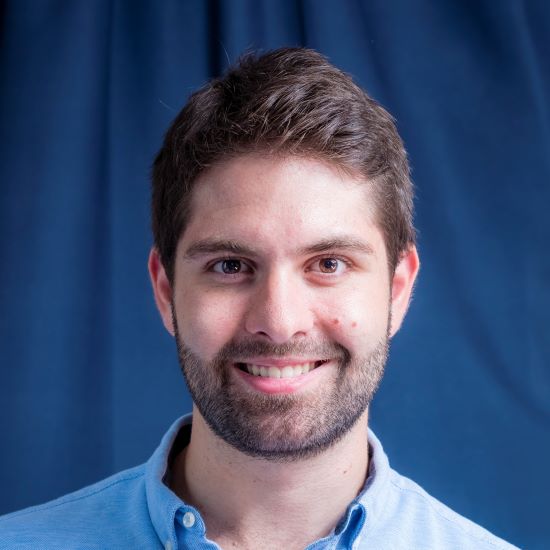
Dr Loïc LannelongueUniversity of Cambridge, UK 
Dr Loïc LannelongueUniversity of Cambridge, UK Loïc is a Research Associate in Biomedical Data Science in the Cardiovascular Epidemiology Unit at the University of Cambridge. He leads the Green Algorithms project, an initiative promoting more environmentally sustainable computational science. His research interests also include combining medical imaging and genetic information with machine learning to better understand and treat cardiovascular diseases. He obtained an MSc from ENSAE, the French National School of Statistics, and an MSc from the University of Oxford, before doing his PhD at the University of Cambridge as part of the Cambridge-Baker Systems Genomics Initiative. He is a Software Sustainability Institute Fellow, a Post-doctoral Associate at Jesus College, Cambridge, and an Associate Fellow of Advance HE. 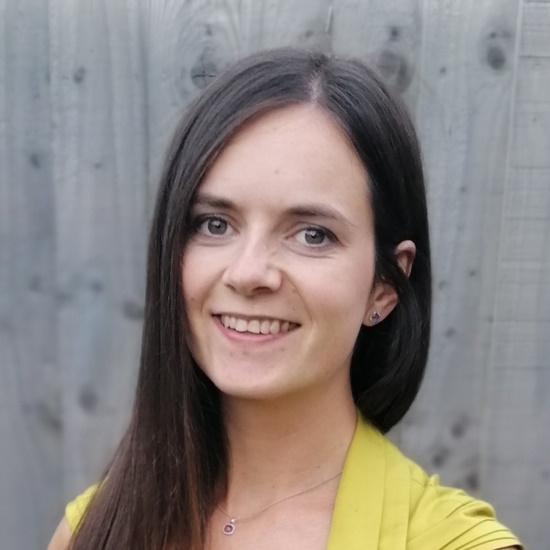
Dr Bethan CoulsonJohnson Matthey 
Dr Bethan CoulsonJohnson Matthey Bethan is the R&D Data Stewardship Lead at Johnson Matthey, representing and enabling digital transformation for chemists, to drive innovation and get sustainable products to market quicker. Prior to this, she has experience across several laboratory settings working as a researcher towards a net zero future in the Hydrogen Technologies side of the business. She obtained her MChem from the University of Oxford, PhD in Organic Synthesis from Imperial College London and CSIRO, Australia and CSci from the Royal Society of Chemistry (RSC). At the RSC, Bethan volunteers her time as an elected Early Career representative on the Members Community Board, which is involved in strategy and governance of its member networks and has been a committee member on the Process Chemistry & Technology Interest Group for five years. |
|---|
Chair
Professor Roger Sheldon, Delft University of Technology
Professor Roger Sheldon, Delft University of Technology
Roger Sheldon is a recognised authority on Green Chemistry and Catalysis and is widely known for developing the concept of E factors for assessing the environmental footprint of chemical processes. He is Professor Emeritus of Biocatalysis and Organic Chemistry of Delft University of Technology and Chief Executive Officer of CLEA Technologies. He is the author of several books on catalysis as well as more than 450 professional papers and 50 granted patents. His research interests are in the general area of green chemistry, (bio)catalysis and enzyme immobilisation.
He has a Ph.D. in organic chemistry from the University of Leicester (UK) and prior to joining Delft University, in 1991, he had more than 20 years industrial experience, as Vice President for Research and Development at DSM / Andeno from 1980 to 1990 and with Shell Research Amsterdam from 1969 to 1980.
Chair
Professor Roger Sheldon, Delft University of Technology
Professor Roger Sheldon, Delft University of Technology
Roger Sheldon is a recognised authority on Green Chemistry and Catalysis and is widely known for developing the concept of E factors for assessing the environmental footprint of chemical processes. He is Professor Emeritus of Biocatalysis and Organic Chemistry of Delft University of Technology and Chief Executive Officer of CLEA Technologies. He is the author of several books on catalysis as well as more than 450 professional papers and 50 granted patents. His research interests are in the general area of green chemistry, (bio)catalysis and enzyme immobilisation.
He has a Ph.D. in organic chemistry from the University of Leicester (UK) and prior to joining Delft University, in 1991, he had more than 20 years industrial experience, as Vice President for Research and Development at DSM / Andeno from 1980 to 1990 and with Shell Research Amsterdam from 1969 to 1980.
| 09:45-10:35 |
Making science greener: Community perspectives and solutions
As the environmental sustainability of research has come into the spotlight more, members of the Royal Society of Chemistry (RSC) wanted to get a picture of the current situation for scientists and their organisations: How much are people thinking about the environmental impacts of their research? What changes are they making? What is preventing them from taking action and what do they think would help them to do more? To start to answer these questions, 700 practising scientists were surveyed and the results were published, combined with desk research and insights from expert working groups, in the 2022 RSC Sustainable Labs report. It was found that 84% of respondents want to do more to reduce the environmental impacts of their research but that there is lot of variation in the extent to which people are taking action reduce these impacts. In this talk, Deirdre will also share what was heard about the concrete actions that people are taking, as well as their perspectives on barriers and opportunities at different scales. 
Dr Deirdre BlackRoyal Society of Chemsitry 
Dr Deirdre BlackRoyal Society of Chemsitry Deirdre Black is Head of Science & Sustainability Strategy Lead at the Royal Society of Chemistry where she has led the science policy, programmes and networks teams. Her role includes community insights and horizon scanning, with recent themes ranging from the contributions of science to the Sustainable Development Goals (SDGs) and digitisation in R&D to scientific recognition and green science. Deirdre has a PhD in physics and a postgraduate certificate in sustainable business practice. She held postdoctoral positions in physics and in science education policy in the USA and UK before joining the RSC in 2011. |
|---|
| 11:05-11:20 |
Report release: Academy of Medical Sciences' FORUM report on enabling greener clinical research
Biomedical research is a significant contributor to the UK's carbon footprint and a large consumer of plastics, but measuring and reducing its environmental impact is complex. Challenges include a need for strategic coordination, a lack of resource (eg in the workforce) to support efforts, and a need to define evidence-based metrics and 'green' standards for research. To discuss the challenges and potential solutions, the Academy of Medical Sciences' cross-sector programme, FORUM, ran a workshop in March in partnership with the NIHR and the MRC on 'enabling environmentally sustainable biomedical research'. The cross-sector workshop considered how to enable greener practices in both wet-lab and clinical research environments. In this session, workshop co-chairs, Professor Frank Kelly FMedSci and Professor Paula Williamson FMedSci will reflect on the workshop and lead a panel discussion amongst cross-sector stakeholders to consider the difficulties particularly faced in enabling 'greener' clinical research practice, and clinical trials in particular. Panellists may consider the lessons to be learned from behavioural science and expand on topics raised in the workshop such as patient involvement, regulation, funding, and trial design. The Academy of Medical Sciences is the independent, expert voice of biomedical and health research in the UK, with the mission to improve the health of people everywhere by creating an open and progressive research sector. The Academy of Medical Sciences' FORUM provides an independent platform for senior leaders from across academia, industry, government, and the charity, healthcare and regulatory sectors to come together with patients and take forward national discussions on scientific opportunities, technology trends and associated strategic choices for healthcare and other life sciences sectors. Professor Frank Kelly FMedSci, King's College London, UK
Professor Frank Kelly FMedSci, King's College London, UKProfessor Kelly holds the chair in Environmental Health at King's College London, where he is Director of the Environmental Research Group, Director of the NIHR Health Protection Research Unit on Environmental Hazards and Deputy Director of the MRC-PHE Centre for Environment & Health. Professor Kelly leads a substantial research activity which spans all aspects of air pollution research from toxicology to science policy. He has led studies of the urban airshed within London including the impact of the introduction of London’s Congestion Charging Zone and Low Emission Zone. Professor Kelly’s research is currently examining the toxicity of PM associated metals and quinones, diesel and biodiesel exhaust emissions, wood smoke and the identification of biomarkers of exposure. A new area of investigation is ambient microplastics including heir identification and potential health effects. Professor Kelly has published over 350 peer-reviewed papers as well as many conference papers and books (as author or editor) on the toxicology and health effects of ozone, nitrogen dioxide and particulate pollution. In addition to his academic work Prof Kelly is past President of the European Society for Free Radical Research and past Chairman of the British Association for Lung Research. He has provided policy support to the WHO on air pollution issues and he is Chairman of COMEAP the UK’s Department of Health’s Expert Committee on the Medical Effects of Air Pollutants. |
|---|---|
| 11:20-11:55 |
Enabling greener clinical research: Panel discussion run by the Academy of Medical Sciences’ FORUM
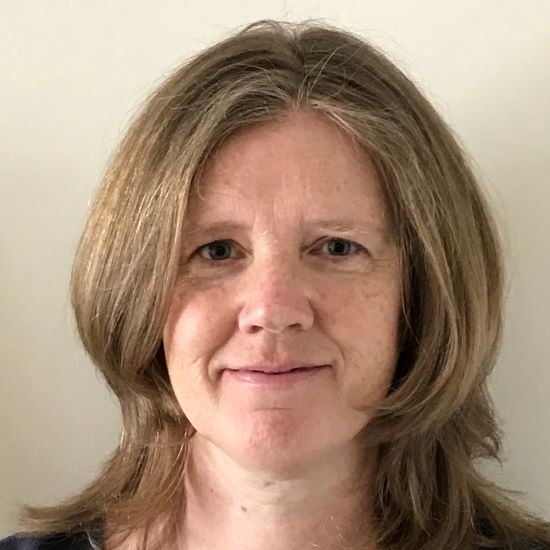
Professor Paula Williamson FMedSciUniversity of Liverpool 
Professor Paula Williamson FMedSciUniversity of Liverpool Paula Williamson is Professor of Biostatistics at the University of Liverpool. Her research programme has focussed on several aspects of evidence-based medicine (EBM) including clinical trials, meta-analysis, health outcome selection and reducing waste in research. She was appointed as an NIHR Senior Investigator in 2014, gave the Bradford Hill Lecture in 2017, and was elected Fellow of the Academy of Medical Sciences (AMS) in 2018 and to AMS Council in 2021. She chaired the MRC Network of Hubs for Trials Methodology Research from 2008-2018 and led a successful bid for a new MRC Trials Methodology Research Partnership from 2019, bringing together major organisations and 25 UK universities. She leads an MRC Doctoral Training Programme in Trials Methodology across 12 Research Organisations. Paula co-founded the global COMET (Core Outcome Measures in Effectiveness Trials) Initiative in 2010, to improve the quality and relevance of health research to decision makers including patients, health professionals, regulators and policymakers. COMET was the winner of the international Cochrane-REWARD prize in 2017 for reducing waste in research. 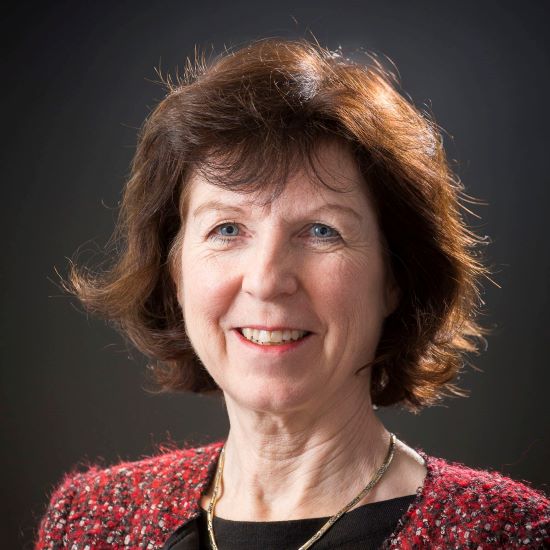
Professor Susan Michie FMedSciUniversity College London, UK 
Professor Susan Michie FMedSciUniversity College London, UK Susan Michie is Professor of Health Psychology and Director of the Centre for Behaviour Change at University College London. Her research focuses on human behaviour change in relation to health and the environment: how to understand it theoretically and apply theory and evidence to intervention and policy development, evaluation and implementation. Her research, collaborating with disciplines such as information science, environmental science, computer science and medicine, covers population, organisational and individual level interventions. Examples include the Human Behaviour-Change Project and Complex Systems for Sustainability and Health. She is an investigator on 15 research projects and has published over 550 journal articles and several books, including the Behaviour Change Wheel: A Guide to Designing Interventions. Susan also serves as an expert advisor on the UK's Covid-19 Scientific Pandemic Insights Group on Behavioural Science (part of SAGE), the Lancet's COVID-19 Commission and a member of the UK's Independent SAGE. She is chair of WHO's Behavioural Insights and Sciences Technical Advisory Group, and a member of its Working Group on Research Methodology for Public Health and Social Measures and its Guideline Development Group on Hand Hygiene in Community Settings. She is part of the Behavioural Science Policy Research Unit advising the UK's Department of Health and Social Care. She also chaired the Academy of Social Science's 'Health of People' project and the Academy of Medical Science's project on systems approaches to health. 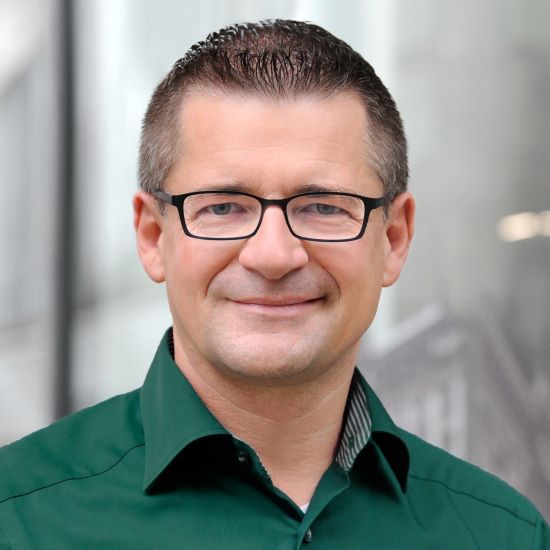
Jürgen WielandNovartis 
Jürgen WielandNovartis Novartis has set various environmental sustainability targets to achieve carbon neutral own operations by 2025, plastic neutrality and water sustainability by 2030, and net-zero by 2040. Jürgen's role as Environmental Sustainability Lead for Global Drug Development in Novartis covers the set-up and execution of low carbon clinical trials. As well as this, Jürgen is in charge of the company-wide target of 'all new products meet sustainable design principles by 2030', which spans from research up to commercial. He is a member of the Environmental Sustainability Strategy Leadership Team of Novartis and Novartis' representative in the Sustainable Healthcare Coalition's Industry Low Carbon Clinical Trial workstream. Jürgen has been engaged in and passionate about the topic of environmental sustainability for more than 35 years. Prior to joining Novartis in 2011, he was the CFO of the non-governmental organisation Solar Energy Foundation, supporting the roll-out of solar energy in rural East Africa. From 2015-2020, he was the Finance Head of Novartis' Global Clinical Supply unit, during which he was awarded the Novartis 'Better World Award for Environmental Sustainability' for significant progress in the decarbonization of clinical trials. 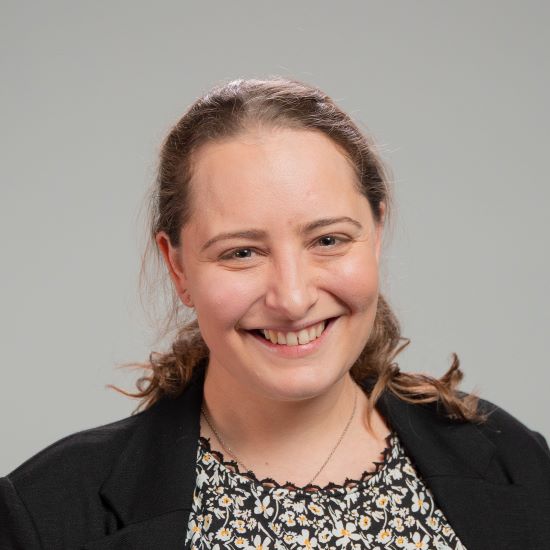
Dr Sophia LentzosNIHR 
Dr Sophia LentzosNIHR Dr Sophia Lentzos is the Head of Sustainability for NIHR where she is responsible for embedding environmental sustainability across the NIHR's work. Sophia has a lifelong passion for environmental causes and sustainability. Before joining NIHR, she trained as a medical doctor and worked as an anaesthetist. In 2021-2022, she became one the first cohort of Chief Sustainability Officer’s Clinical Fellows in Greener NHS. In this role she continued to work on sustainable medicines and helped form a national working group for sustainable anaesthesia. 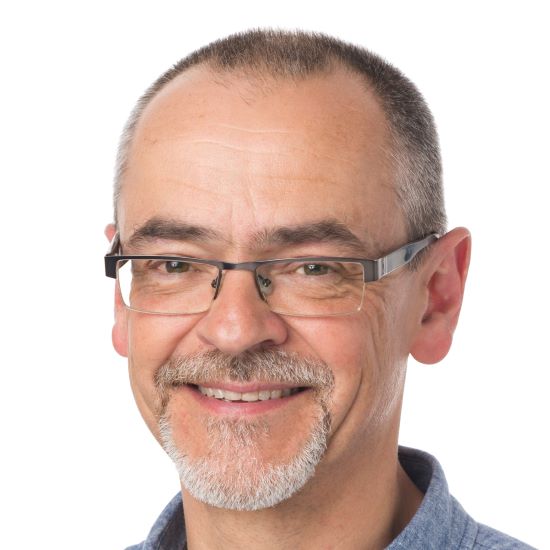
Jim ElliottHealth Research Authority 
Jim ElliottHealth Research Authority Jim Elliott provides leadership to the Health Research Authority on the involvement of patients and the public in health research (part time) as part of his work as an advocate for patients in research. He has been a carer for close family with cancer and other health conditions for many years. His career has been spent in health research management across the commercial, public and voluntary sectors. His combined experiences drive his passion to help ensure that patients and the public can work in partnership with researchers to design, conduct and manage health research. Jim is currently involved as a public contributor in the work of Cancer Research UK, the Wales Cancer Research Centre, the All Wales Cancer Community and in a number of research methodology projects related to the recruitment and retention of participants in clinical trials. His involvement in research also includes being a member of the Consumer Forum of the National Cancer Research Institute, Independent Cancer Patients’ Voice and Health and Care Research Wales’ public involvement community. |
Chair

Martin Farley
UCL

Martin Farley
UCL
Martin started working in labs as a technician and researcher before moving into sustainable labs at the University of Edinburgh in 2013. He then went to King’s College London in 2014, where initiated their Sustainable Lab programme.
In 2015, he founded Green Lab Associates through which he supports the Royal College of Emergency Medicine through their GreenED programme. He created and manages the LEAF programme from UCL, from where he currently works as their Sustainable Lab Manager. He speaks, writes, and engages widely on sustainable science.
| 12:00-12:12 |
Quantifying and reducing Scope 3 lab emissions: Challenges and opportunities
In the Sustainability Office of the School of Life Sciences at EPFL, one of the key missions is to reduce the greenhouse gas emissions of more than 50 research laboratories and core facilities in the faculty. Core to achieving this is the knowledge of the carbon footprint of a research lab and what can be leveraged to take action. To find out, EPFL has developed an online emissions calculation tool that maps emissions sources and simplifies data collection and analysis. Scope 3 emissions represent, by far, the greatest share of a lab's footprint and are therefore the focus of attention. This talk will delve into the challenges faced in quantifying scope 3 emissions, how obstacles were worked around, and the many reduction opportunities that were identified. The lack of data often hindered the process, but decent estimations were still obtained. Depending on the type of scientific research conducted, footprints greatly differ from one lab to another. There is no one solution that fits all to reduce emissions. Meaningful impact can be reached but it requires effort, collaboration, and action at the individual, lab, and institutional level. 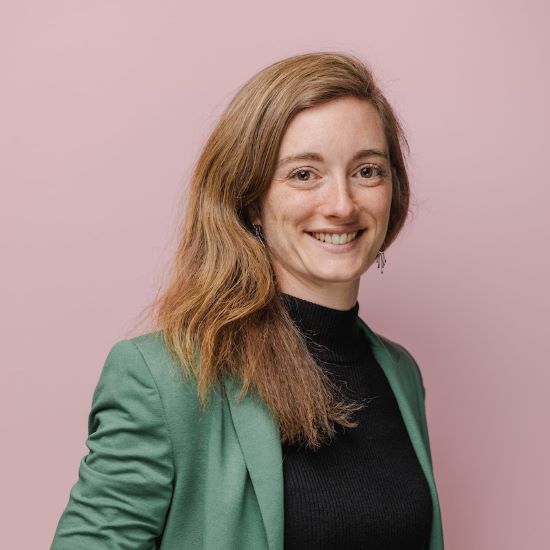
Juliane MianiÉcole Polytechnique Fédérale de Lausanne (EPFL), Switzerland 
Juliane MianiÉcole Polytechnique Fédérale de Lausanne (EPFL), Switzerland Juliane works as a Sustainability Project Manager in the School of Life Sciences at the Ecole Polytechnique Fédérale de Lausanne (EPFL) in Switzerland. She has extensive international experience having worked in France, New Zealand and the United States. She leads the development of an online greenhouse gas emissions calculation tool for the school's research laboratories and core facilities. This tool estimates scope 1 and 2, as well as some key scope 3 emissions such as commuting, professional travel, and purchased goods and services. She collaborates with EPFL's procurement department and suppliers to reduce the environmental footprint of lab purchases. She also conducts a life cycle assessment of the Center of PhenoGenomics, analysing the climate change, human health, ecosystem quality, and water scarcity impacts of the animal facility on campus. Juliane received her training in Sustainability and Environmental Management from the Harvard University - Extension School. |
|---|---|
| 12:12-12:24 |
Unpacking Scope 3 emissions: Using Life Cycle Assessment studies to estimate and reduce the carbon footprint of lab consumables
Scientific research pushes forward the boundaries of human knowledge, but often at a sizeable environmental cost. The reliance of researchers on single-use plastics and disposable consumables has come under increased scrutiny as decarbonisation and environmental sustainability have been prioritised. However, there has been very little exploration of the contribution of laboratory consumables to GHG emissions. This presentation will discuss the first effort to quantify the carbon footprint of common, single-use lab consumables. Estimates of the life cycle emissions for protective wear, plastic products, and solvents were determined through a focused literature review of life cycle assessments (LCAs). Emission hotspots along each product’s life cycle were identified in order to understand how changes in purchasing behaviour, manufacture, and lab disposal would impact carbon emissions. The LCA-based emission factors were applied in a case study in order to demonstrate how they can be used by lab practitioners seeking to understand and mitigate their carbon footprint. 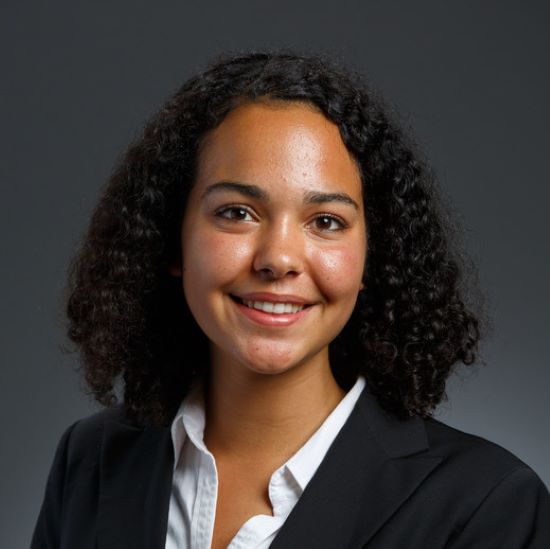
Isabella RagazziUniversity College London 
Isabella RagazziUniversity College London Isabella Ragazzi is a Research Associate at the UCL Institute for Sustainable Resources. She is originally from the United States, but has worked and studied in Spain, Australia, Cuba, Russia and the U.K. She graduated from UCL in 2022, where she completed an MSc in Economics and Policy of Energy and the Environment. Prior to this, she obtained a B.A. in International Affairs and Economics from Northeastern University, USA. Isabella has been leading an effort to quantify the life cycle greenhouse gas (GHG) emissions of lab consumables and identify strategies to reduce the carbon footprint of lab activities. She has also contributed to the development of a tool to incorporate the carbon footprint of consumables into the Laboratory Efficiency Assessment Framework (LEAF), an online platform helping researchers to improve the sustainability and efficiency of their labs. Her current research also focuses on GHG removal (GGR) scale-up, as part of the UK-based CO2RE Hub's efforts to develop a GGR evaluation framework for UK GGR projects. |
| 12:24-12:36 |
From second generation feedstocks to first class consumables: Eppendorf’s contribution to improving sustainability in the laboratories
Eppendorf is committed to sustainability and strives for transparency in this area. We take a data-driven approach in identifying, analysing, and improving the sustainability of our operations and products. By conducting a life cycle assessment (LCA) for 5 mL laboratory vessels according to ISO 14040 and ISO 14044 standards, Eppendorf can make an exemplary side-to-side comparison of a fossil-based versus bio-based laboratory vessel. This talk will give insights regarding the chosen scope of the investigation, identified CO2 'hot spots' the role of the feedstock, and challenges ahead in further improving the sustainability of the products while maintaining the same quality and performance. 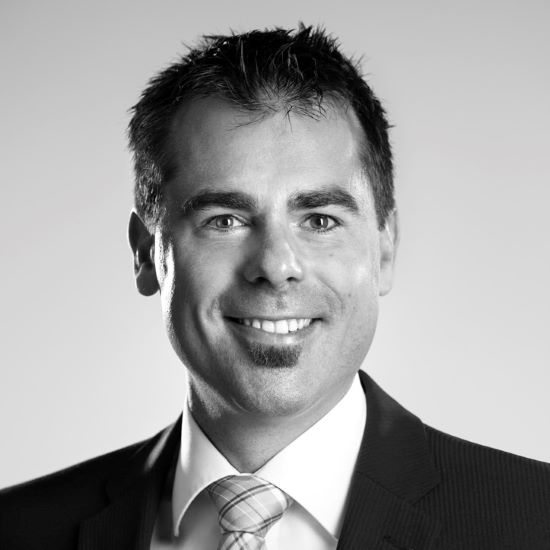
Dr Florian KönigEppendorf 
Dr Florian KönigEppendorf Florian is an industrial engineer specializing in mechanical engineering. Over ten years of working in various roles in product management in the medical device industry, he noted that sustainability did not yet play a major role in customers' purchasing decisions and queried why this was the case. With his move to the Life Sciences industry at Eppendorf in autumn 2021, he has now been able to dedicate himself professionally to the topic of sustainability. At Eppendorf Florian has laid a starting point for more sustainable consumables with the Eppendorf Tubes® BioBased products. He also introduced the ISCC PLUS certification at Eppendorf, which enables the sourcing of sustainable raw materials within an independent and transparent system. His current activities include overseeing life cycle analyses that, among other things, investigate and quantify the factors influencing the switch from fossil-based to bio-based raw materials. With fresh ideas, he would like to contribute to Eppendorf rapidly becoming more sustainable. |
| 12:36-12:55 |
Q&A and discussion

Juliane MianiÉcole Polytechnique Fédérale de Lausanne (EPFL), Switzerland 
Juliane MianiÉcole Polytechnique Fédérale de Lausanne (EPFL), Switzerland Juliane works as a Sustainability Project Manager in the School of Life Sciences at the Ecole Polytechnique Fédérale de Lausanne (EPFL) in Switzerland. She has extensive international experience having worked in France, New Zealand and the United States. She leads the development of an online greenhouse gas emissions calculation tool for the school's research laboratories and core facilities. This tool estimates scope 1 and 2, as well as some key scope 3 emissions such as commuting, professional travel, and purchased goods and services. She collaborates with EPFL's procurement department and suppliers to reduce the environmental footprint of lab purchases. She also conducts a life cycle assessment of the Center of PhenoGenomics, analysing the climate change, human health, ecosystem quality, and water scarcity impacts of the animal facility on campus. Juliane received her training in Sustainability and Environmental Management from the Harvard University - Extension School. 
Dr Florian KönigEppendorf 
Dr Florian KönigEppendorf Florian is an industrial engineer specializing in mechanical engineering. Over ten years of working in various roles in product management in the medical device industry, he noted that sustainability did not yet play a major role in customers' purchasing decisions and queried why this was the case. With his move to the Life Sciences industry at Eppendorf in autumn 2021, he has now been able to dedicate himself professionally to the topic of sustainability. At Eppendorf Florian has laid a starting point for more sustainable consumables with the Eppendorf Tubes® BioBased products. He also introduced the ISCC PLUS certification at Eppendorf, which enables the sourcing of sustainable raw materials within an independent and transparent system. His current activities include overseeing life cycle analyses that, among other things, investigate and quantify the factors influencing the switch from fossil-based to bio-based raw materials. With fresh ideas, he would like to contribute to Eppendorf rapidly becoming more sustainable. 
Isabella RagazziUniversity College London 
Isabella RagazziUniversity College London Isabella Ragazzi is a Research Associate at the UCL Institute for Sustainable Resources. She is originally from the United States, but has worked and studied in Spain, Australia, Cuba, Russia and the U.K. She graduated from UCL in 2022, where she completed an MSc in Economics and Policy of Energy and the Environment. Prior to this, she obtained a B.A. in International Affairs and Economics from Northeastern University, USA. Isabella has been leading an effort to quantify the life cycle greenhouse gas (GHG) emissions of lab consumables and identify strategies to reduce the carbon footprint of lab activities. She has also contributed to the development of a tool to incorporate the carbon footprint of consumables into the Laboratory Efficiency Assessment Framework (LEAF), an online platform helping researchers to improve the sustainability and efficiency of their labs. Her current research also focuses on GHG removal (GGR) scale-up, as part of the UK-based CO2RE Hub's efforts to develop a GGR evaluation framework for UK GGR projects. |
Chair

Professor Helen Sneddon
University of York, UK

Professor Helen Sneddon
University of York, UK
Professor Helen Sneddon carried out her MSci and PhD at the University of Cambridge, where she studied the use of dithianes in organic synthesis in Professor Steve Ley’s group. She then moved to University of California Irvine to work with Professor Larry Overman exploring the catalytic asymmetric chemistry of palladium(II) as a Royal Commission for the Exhibition of 1851 research fellow.
She then worked at GSK for 15 years. She started in Medicinal Chemistry, but became increasingly involved in making synthetic processes and research operations as efficient and sustainable as possible.
In 2011, she successfully pitched that GSK should have a group focussed solely on Green Chemistry, and she led Green Chemistry for GSK until taking up position the Director of the Green Chemistry Centre of Excellence at the University of York in April 2022. Her current research interests include solvent and reagent selection, halogenation (both exploring more sustainable ways of installing halogens and whether they are really necessary) and laboratory sustainability.
| 14:05-14:25 |
Title TBD
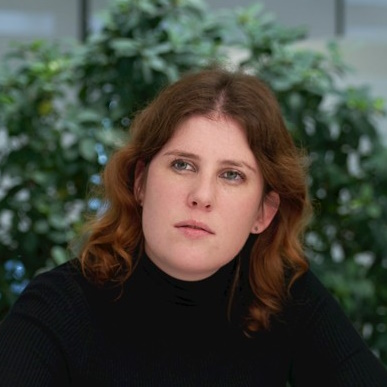
Rachael EverardRolls Royce 
Rachael EverardRolls Royce Rachael Everard is the Head of Sustainability at Rolls-Royce. Having completed her MSc in Sustainable Development, Corporate Social Responsibility and Management at the University of St Andrews, Rachael joined Rolls-Royce where she is now Head of Sustainability. In that role, she is responsible for the development and execution of Group-wide sustainability and decarbonisation strategy, including target setting, implementation and reporting, including leading Rolls-Royce's engagement on net zero and the energy transition. Rachael is chartered environmentalist and member of the Institute of Environmental Management & Assessment (IEMA), and a fellow of the Institute of Corporate Responsibility & Sustainability (ICRS), and a corporate advisory board member of WE MEAN BUSINESS. |
|---|---|
| 14:25-14:45 |
Towards the sustainable manufacture of active pharmaceutical ingredients
In 2019 AstraZeneca announced Ambition Zero Carbon as one of its sustainability focus areas. Ambition Zero Carbon is AstraZeneca’s science-based climate strategy aimed at delivering decarbonisation across the value chain and was one of the first to be verified under the Science Based Targets Initiative (SBTI) corporate standard. This strategy sets challenging emissions reductions targets along AstraZeneca’s path to becoming net zero by 2045. The manufacture of Active Pharmaceutical Ingredients (APIs) is recognised as a significant contributor to AstraZeneca’s carbon footprint and meeting future emissions targets represents a significant challenge for Chemical Sciences in AstraZeneca. This presentation will outline how API manufacture contributes to AstraZeneca’s carbon footprint, the role that chemistry has to play across the value chain, and examples of how AstraZeneca is currently addressing this challenge with today’s technologies. It will also highlight the limitations of current approaches and highlight areas for development of new technologies and approaches that will be needed to meet AstraZeneca’s goals. 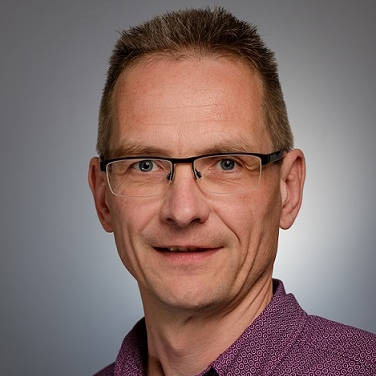
Steve SwallowAstraZeneca 
Steve SwallowAstraZeneca Steve Swallow is a Principal Scientist in Sustainability working in the Chemical Development department at AstraZeneca in Macclesfield. Steve studied at the University of Sheffield, gaining his PhD with Dr Neville Jones before taking a SERC/NATO fellowship with Professor Gary Molander at the University of Boulder in Colorado. He joined Roche at Welwyn Garden City in 1994 as a medicinal chemist and worked on antiviral therapies before moving to the Roche site in Palo Alto in California in 2001 to continue research in the HIV and Hepatitis C virus areas. Steve joined AstraZeneca in Cheshire in 2004, initially at Alderley Park, where he has held a number of roles working across multiple therapy areas, and disciplines including three years working in the toxicology function. In 2015 he moved away from medicinal chemistry to join the Chemical Development group at Macclesfield. He has published numerous papers, several book chapters and is an inventor on multiple patents. |
| 14:45-15:05 |
The Cell and Gene Therapy Catapult : our approach to sustainability
The evolution of medicinal therapies to next generation cell and gene therapies holds tremendous promise for patients, with some advanced medicinal products (ATMPs) being potentially curative. ATMPs represent a key shift in patient care, decreasing the burden on the healthcare system and thus by proxy the potential to contribute to reductions healthcare’s environmental impact. Secondly, in the not so distant future it is likely that sustainability will be seen as an essential dimension of quality. Sustainability is likely to become a core value similar to equity or accessibility, with mechanisms to monitor and hold the industry and healthcare system accountable for its environmental performance. For the ATMP industry to deliver on this promise, efficient, high yield, closed processes with resultant lowered environmental impacts per product yield are required. CGT Catapult have already begun to accelerate technology development in this space. CGTC’s approach is two pronged, firstly by using CGTC as a test bed to tackle the common challenges facing our industry such as divesting from fossil fuels needed in facilities operations, process and technology innovations to reduce time-in-plant and single use plastics, and secondly by identifying emissions across value chains, establishing design and lifecycle analysis capabilities to support innovations in manufacturing of ATMPs, support for emissions reduction in process development and effective carbon accounting. Ultimately, CGT Catapult aims to enable a new model of approaching innovation for ATMPs where product and process improvements are considered hand-in-hand with environmental impact. 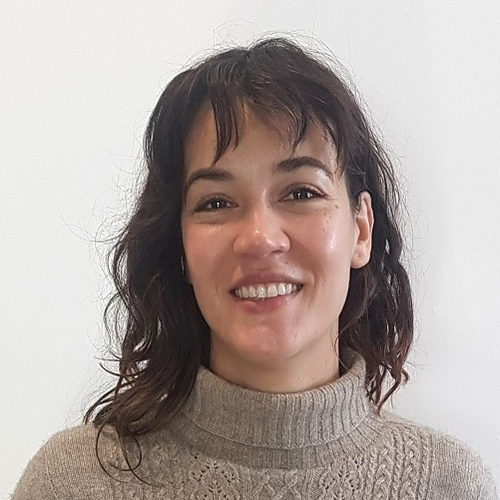
Dr Anan Hoest-RagabCell and Gene Therapy Catapult 
Dr Anan Hoest-RagabCell and Gene Therapy Catapult The Cell and Gene Therapy Catapult (CGT Catapult) is an independent innovation and technology organisation committed to the advancement of cell and gene therapies with a vision of a thriving industry delivering life-changing advanced therapies to the world. Its aim is to create powerful collaborations which overcome challenges to the advancement of the sector. With over 400 experts covering all aspects of advanced therapies, it applies its unique capabilities and assets and collaborates with academia, industry and healthcare providers to develop new technology and innovation. Anan completed her BSc in Biochemistry and Chemistry at Roskilde University, Denmark, then went on to complete an MSc and PhD at the University of Cambridge at the MRC Laboratory of Molecular Biology. After her PhD, Anan moved Germany to work at the European Molecular Biology Laboratory (EMBL) and the German Cancer Research Center (DKFZ) to research functional genomics, and to the MRC Laboratory for Molecular Cell Biology (LMCB) at University College London, specialising in stem cell research. She has also worked in medical affairs and market access/health economic outcomes research in biotech. At CGT Catapult she is programme manager for the Allogeneic Cell Therapies programme. Since 2020 she has also been Sustainability Manager for the business. The CGT Catapult takes a two-pronged approach, first using CGT Catapult as a test bed to tackle the common challenges facing the industry such as divesting from fossil fuels needed in facilities operations, then also considering process and technology innovations and innovations in manufacture of cell and gene therapies, process development and effective carbon accounting. |
| 15:05-15:25 |
Sustainability at AWE: The Hub as an example for the future
Last year, the Atomic Weapons Establishment (AWE) launched an updated ambitious Environmental Sustainability Strategy in response to increased focus on issues such as climate change, biodiversity loss and resource scarcity. It identified three themes where the business felt it could make a significant difference, namely the implementation of the circular economy, the reduction of carbon emissions and the enhancement of biodiversity. Each theme has goals for 2030 and 2040 which align to achieving individual 2050 visions, including the achievement of net zero carbon emissions across the value chain. The strategy comes at a time when AWE is undergoing significant onsite investment and development to ensure it can deliver its future programme, radically changing the landscape and modernising its facilities and capabilities. In this talk, Olivia will discuss The Hub, AWE's future building for science and engineering. The Hub is due to come online within the next five years and the talk will explore the company's sustainability strategy and how it has been implemented in the planning, design and building stages of the project, as well as in the realisation when it becomes operational. 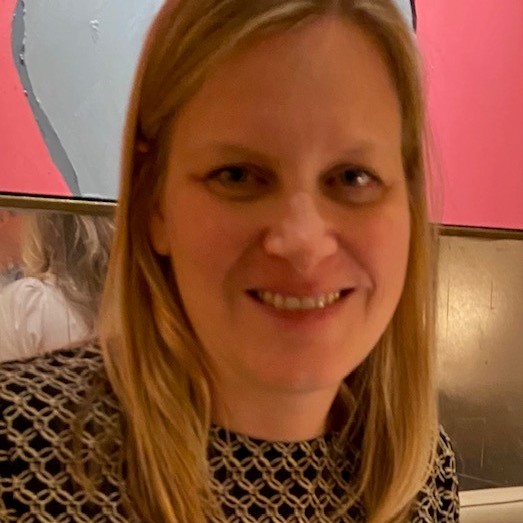
Dr Olivia MarsdenAtomic Weapons Establishment 
Dr Olivia MarsdenAtomic Weapons Establishment Dr Olivia Marsden completed a degree in Chemistry followed by a PhD in environmental radiochemistry at the University of Manchester. She worked for a commercial analytical laboratory, certifying methods for UKAS 17025 accreditation before moving to the Atomic Weapons Establishment (AWE). Olivia has worked at AWE for nearly 20 years, originally as a laboratory analyst, and then moving into task and line management. She took on a team leader role in support of the company’s nuclear security programme, and subsequently was appointed as a Group Leader ten years ago. The group of approximately 80 people support regulatory compliance requirements at AWE or deliver part of the nuclear threat reduction programme. More recently, Olivia has been appointed as Acting Head of the Labs Technology Centre, with a focus on current and future ways of working, including moving operations in to the new science and engineering building at AWE the Hub. |
| 15:25-15:45 |
Q&A and discussion session

Rachael EverardRolls Royce 
Rachael EverardRolls Royce Rachael Everard is the Head of Sustainability at Rolls-Royce. Having completed her MSc in Sustainable Development, Corporate Social Responsibility and Management at the University of St Andrews, Rachael joined Rolls-Royce where she is now Head of Sustainability. In that role, she is responsible for the development and execution of Group-wide sustainability and decarbonisation strategy, including target setting, implementation and reporting, including leading Rolls-Royce's engagement on net zero and the energy transition. Rachael is chartered environmentalist and member of the Institute of Environmental Management & Assessment (IEMA), and a fellow of the Institute of Corporate Responsibility & Sustainability (ICRS), and a corporate advisory board member of WE MEAN BUSINESS. 
Steve SwallowAstraZeneca 
Steve SwallowAstraZeneca Steve Swallow is a Principal Scientist in Sustainability working in the Chemical Development department at AstraZeneca in Macclesfield. Steve studied at the University of Sheffield, gaining his PhD with Dr Neville Jones before taking a SERC/NATO fellowship with Professor Gary Molander at the University of Boulder in Colorado. He joined Roche at Welwyn Garden City in 1994 as a medicinal chemist and worked on antiviral therapies before moving to the Roche site in Palo Alto in California in 2001 to continue research in the HIV and Hepatitis C virus areas. Steve joined AstraZeneca in Cheshire in 2004, initially at Alderley Park, where he has held a number of roles working across multiple therapy areas, and disciplines including three years working in the toxicology function. In 2015 he moved away from medicinal chemistry to join the Chemical Development group at Macclesfield. He has published numerous papers, several book chapters and is an inventor on multiple patents. 
Dr Anan Hoest-RagabCell and Gene Therapy Catapult 
Dr Anan Hoest-RagabCell and Gene Therapy Catapult The Cell and Gene Therapy Catapult (CGT Catapult) is an independent innovation and technology organisation committed to the advancement of cell and gene therapies with a vision of a thriving industry delivering life-changing advanced therapies to the world. Its aim is to create powerful collaborations which overcome challenges to the advancement of the sector. With over 400 experts covering all aspects of advanced therapies, it applies its unique capabilities and assets and collaborates with academia, industry and healthcare providers to develop new technology and innovation. Anan completed her BSc in Biochemistry and Chemistry at Roskilde University, Denmark, then went on to complete an MSc and PhD at the University of Cambridge at the MRC Laboratory of Molecular Biology. After her PhD, Anan moved Germany to work at the European Molecular Biology Laboratory (EMBL) and the German Cancer Research Center (DKFZ) to research functional genomics, and to the MRC Laboratory for Molecular Cell Biology (LMCB) at University College London, specialising in stem cell research. She has also worked in medical affairs and market access/health economic outcomes research in biotech. At CGT Catapult she is programme manager for the Allogeneic Cell Therapies programme. Since 2020 she has also been Sustainability Manager for the business. The CGT Catapult takes a two-pronged approach, first using CGT Catapult as a test bed to tackle the common challenges facing the industry such as divesting from fossil fuels needed in facilities operations, then also considering process and technology innovations and innovations in manufacture of cell and gene therapies, process development and effective carbon accounting. 
Dr Olivia MarsdenAtomic Weapons Establishment 
Dr Olivia MarsdenAtomic Weapons Establishment Dr Olivia Marsden completed a degree in Chemistry followed by a PhD in environmental radiochemistry at the University of Manchester. She worked for a commercial analytical laboratory, certifying methods for UKAS 17025 accreditation before moving to the Atomic Weapons Establishment (AWE). Olivia has worked at AWE for nearly 20 years, originally as a laboratory analyst, and then moving into task and line management. She took on a team leader role in support of the company’s nuclear security programme, and subsequently was appointed as a Group Leader ten years ago. The group of approximately 80 people support regulatory compliance requirements at AWE or deliver part of the nuclear threat reduction programme. More recently, Olivia has been appointed as Acting Head of the Labs Technology Centre, with a focus on current and future ways of working, including moving operations in to the new science and engineering building at AWE the Hub. |
Chair
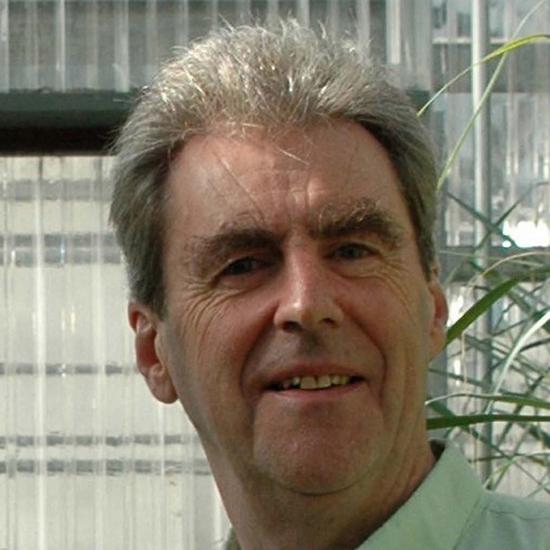
Professor Richard Flavell CBE FRS
International Wheat Yield Partnership

Professor Richard Flavell CBE FRS
International Wheat Yield Partnership
Richard Flavell is a plant geneticist who has focused much attention on traits important in crop plants. In the last 5 years he has served as Chief Scientist in two companies in the USA. The first, Indigo, Cambridge, Mass. is an agricultural microbiome company. The second, Inari, is an agricultural plant genetics company. He is currently a consultant for companies and public sector organizations committed to plant improvement, including the International Wheat Yield Partnership. After his undergraduate degree in microbiology, his PhD in the John Innes Institute and the University of East Anglia he spent two years of postdoctoral research in Stanford University, California. He then joined the Plant Breeding Institute in Cambridge UK where he built up a large Department of Plant Molecular Genetics between 1969 and 1987. He was then appointed as Director of the John Innes Centre (JIC), Norwich and to a chair at the University of East Anglia and oversaw a large expansion of JIC’s activities and impact. In 1998 he became the Chief Scientific Officer of Ceres, a young plant genomics company in California. This became a public company and was recently bought by a multinational agricultural company. He is a Fellow of the Royal Society of London and a Commander of the British Empire for services to science.
| 16:15-17:15 |
Panel discussion with funders
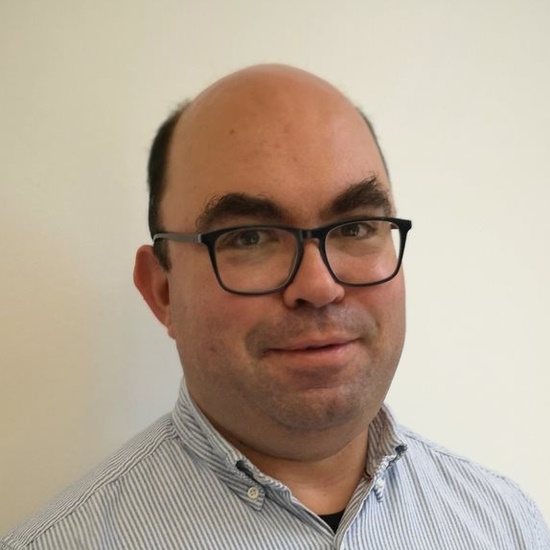
Dr Andrew ClarkRoyal Academy of Engineering 
Dr Andrew ClarkRoyal Academy of Engineering Andrew Clark is the Executive Director of Programmes at the Royal Academy of Engineering, responsible for its UK activities that promote innovation, talent and diversity in support of a sustainable society and an inclusive economy that works for everyone. Before joining the Academy in 2016, he was the Director of Research Planning at UCL, mostly working on building multidisciplinary research activities. He began his career at the Engineering and Physical Sciences Research Council, having studied for a doctorate in Philosophy of Science at Balliol College, Oxford. 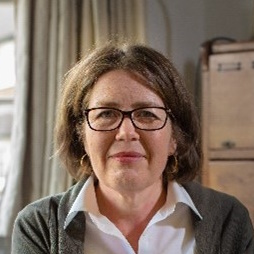
Alison RobinsonNational Environment Research Council 
Alison RobinsonNational Environment Research Council Alison Robinson is National Environment Research Council (NERC) Deputy Executive Chair and Director of Corporate Affairs. Alison is responsible for NERC's corporate strategy and planning, insight, futures, business and stakeholder engagement, sustainability, public engagement with environmental science, impact and outcomes evidence and takes a leading role in managing change. Before joining NERC in July 2014, she led on policy and external affairs during the successful start-up of the Legal Ombudsman, a national organisation established to reform consumer complaints and improve standards across the legal sector. Alison started out as a lawyer, working in the courts and the voluntary sector before joining the public service in Australia. There she worked across a range of sectors, including immigration policy and operations, economic development, gambling regulation and reform, health and competition policy. Alison left Australia in 2003, moving to Bangladesh, where she worked with national NGOs contributing to their strategy, advocacy and evaluation to support programmes promoting disability rights and preventing domestic violence. Alison graduated with a combined degree in arts and law from the University of New South Wales, Australia, and completed a research masters of social policy and planning (Charles Sturt University) while living and working in Dhaka, Bangladesh. She is a member of the Chartered Institute of Public Relations. 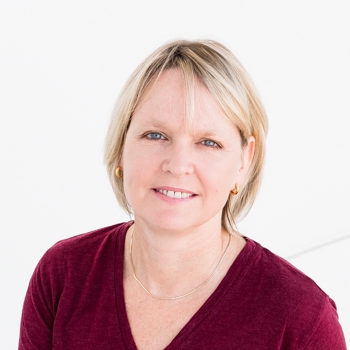
Alyson FoxThe Wellcome Trust 
Alyson FoxThe Wellcome Trust Alyson Fox is the Director of Research Funding at the Wellcome Trust. She has responsibility for the management and governance of Wellcome's grant funding and review processes She joined Wellcome in November 2010 after a career in the pharma industry. She spent 13 years working in drug discovery at Novartis, ultimately leading a therapeutic area responsible for a portfolio of projects from target discovery and preclinical development to clinical trials. Before this, she pursued a research career at University College London and Imperial College. She has experience in neuroscience, respiratory and gastrointestinal research areas. 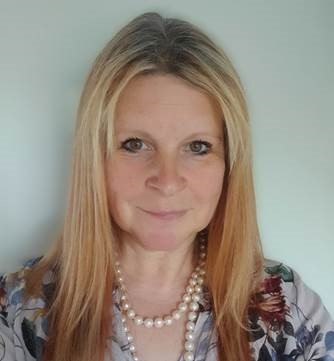
Dr Rachel GrimleyCancer Research UK 
Dr Rachel GrimleyCancer Research UK Rachel is Senior Vice President of Drug Discovery for Cancer Research Horizons, Cancer Research UK. Rachel has over 20 years of experience in pre-clinical drug discovery, incorporating target identification through to drug candidate nomination, across a number of companies. She has contributed to the discovery and characterisation of numerous drug candidates, and three marketed medicines, across a diverse range of disease areas including oncology, neuroscience, respiratory, cardiovascular and anti-infectives. Rachel is also an Expert-in-Residence at the University of Oxford. Prior to joining Cancer Research Horizons in 2021, Rachel was Executive Director and Head of Mechanistic Biology & Profiling at AstraZeneca, with global responsibility for in vitro mechanism of action studies, SAR biology profiling, Wave1 DMPK and pre-clinical safety screening across the UK, US and Sweden. Previously, Rachel held roles of increasing responsibility at Pfizer in Sandwich, GlaxoSmithKline in Stevenage and Pfizer Neusentis in Cambridge. Rachel gained her PhD in Mechanistic Enzymology from the University of Birmingham and completed post-doctoral studies at the University of Oxford. |
|---|
